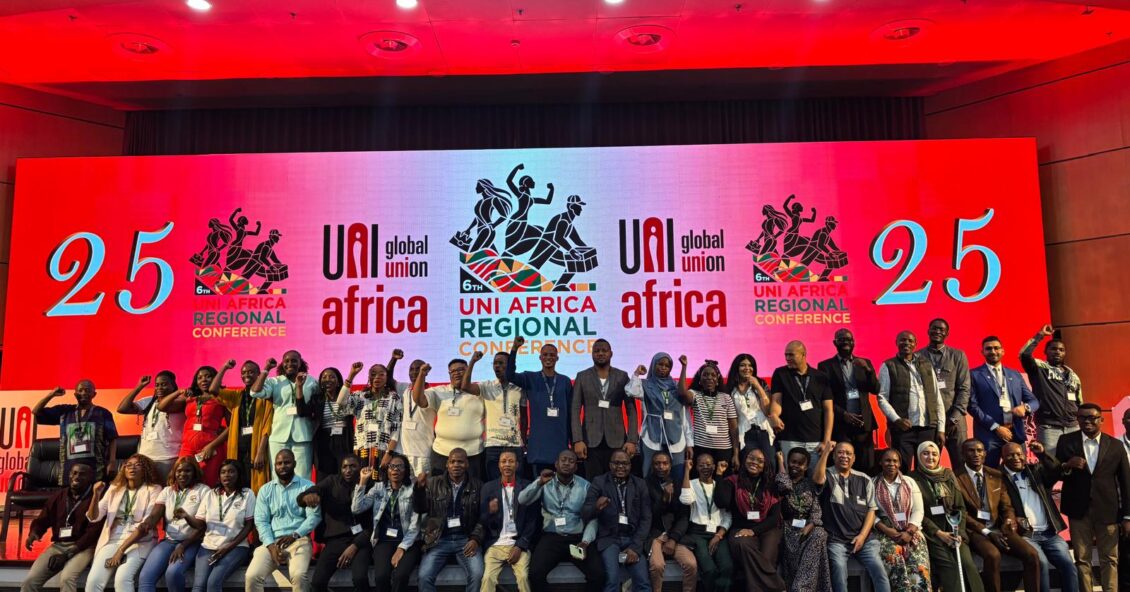Latin America – 90% of surveyed workers in TV, film and performing arts suffered violence, harassment
18.03.22
New survey – the first regional study to include trans and non-binary workers – highlights engrained culture of sexism, violence and harassment
A survey report published today by UNI Global Union’s Media, Entertainment & Arts department and the International Federation of Actors, puts a spotlight on the deep-rooted and damaging culture of sexism, discrimination, violence and harassment in the audiovisual and performing arts sectors in Latin America.
It is the first survey by the unions studying violence and harassment in the region’s industries, and the first regional study to include trans and non-binary workers – who are most impacted.
The study found that almost 90 per cent (89.4%) of respondents said they have experienced situations of violence and/or harassment in their workplaces. Broken down, the figure was 95% for trans or non-binary workers, 87% for women and 70% for men.
The survey targeted 16 countries across Latin America and generated responses from 1,423 people. However, the vast majority of respondents came from seven countries: Argentina, Brazil, Chile, Colombia, Mexico, Peru and Uruguay. Only 36 responses came from ‘other countries’.
Almost 4 out of 10 people said they had been a victim of sexual harassment at work (37.4%), while 42% said they had intervened to reject or report a case of harassment at work, sexual harassment at work and gender-based violence. In Mexico, more than half (54%) of respondents said they had suffered sexual harassment in the workplace.
On average, more than half of respondents said they had identified situations of sexual harassment in the work environment (55.4%), and it was most prevalent in Mexico (68.5%).
In Peru, 65.4% of respondents said they had been afraid or unwilling to go to work because they or someone on their team had experienced situations of violence and harassment. Even in the lowest case, in Uruguay, more than half of respondents felt the same (52%). Across the region, the percentage rose to 86.5% for trans and non-binary people and 61.7% for women.
Some 81% of women and 76% of trans and non-binary respondents said they had experienced ‘micromachismo’ in their work environment compared to 26% of men, revealing entrenched attitudes of male superiority and the occurrence of daily incidents of normalized macho behaviour positioning women and trans and non-binary respondents in a diminished, oppressed or excluded role.
Trans and non-binary people were found most likely to be left out in the workplace, with 73% agreeing with the statement that they had been ignored or underestimated by a manager or someone in their team, compared to 61% of women and 41% of men.
Trans and non-binary people are also most likely to have seen their career development limited due to situations of gender violence (75.7%), compared to 55% of women. Exactly half the numbers of men 27.5% said they had felt limited in their career development due to the same reason.
When it came to making complaints against incidences of violence and harassment, 70% of respondents thought that whistleblowing can lead to negative consequences. Furthermore, only 26% of respondents said they would trust their employer to know what to do in these cases. Both trends are found in all countries and in all sectors identified in the survey.
“This is a very important investigation that involves several Latin American countries and will give us the knowledge to understand and confront workplace violence and harassment. There is a whole macho culture in Latin America that must be combated. Identifying forms of harassment is one way to do it,” stated Sonia Santana, president of Sindcine in Brazil and vice president of UNI Media, Entertainment & Arts Americas.
“Violence against women and trans and non-binary professionals takes many forms in the work environment: harassment, sexual harassment, segregation, wage discrimination, hiring restrictions, glass ceiling, just to name a few. We urgently needed a clear and precise diagnosis in order to promote and adopt specific policies. We find in this survey a good tool for such a diagnosis and the creation of essential networks to generate better and more equitable working conditions and, as the report itself indicates, to build safe, dignified, egalitarian and respectful of diversity workplaces,” said Alicia Dogliotti, Vice-President of FIA.
The report also includes key recommendations for unions, including education, training and communication actions on the issues, as well as protocols, collective bargaining and inter-regional trade union networks.
The Analysis of the “Regional Survey on Violence and Harassment in the Workplace in the Audiovisual and Performing Arts Industry in Latin America” will be launched at a live event on Friday 18 March at 12 pm (Argentina/Brazil/Uruguay time) here: fb.me/e/2eWoWR2Yn
Anonymous testimonials collected through the survey:
“I was ‘invited to retire’ from two comedies in the middle of rehearsals because I was pregnant.”
“In one interview the department head asked me for a kiss, and when I refused, he said ‘If you really wanted this job, you would do whatever it took to get it’.”
“Producers who invite you for a drink in exchange for casting you in a role.”
“Inappropriate behaviour such as hugging for longer than appropriate and non-consensual touching at the time of the ‘socially obligated’ hug when greeted by a director.”
“Mistreatment on stage, mockery and insults in a joking and belittling tone.”
“All my subordinates are men, and they don’t like me bossing them around. They question my orders, if a man gives the same order, they follow it.”
ENDS
For more information please contact: Leonie Guguen, Senior Communications Manager, UNI Global Union. Tel: +41 79 137 5436. Email: leonie.guguen@uniglobalunion.org
UNI Media, Entertainment & Arts unites unions and guilds around the world to raise standards and enforce rights for creatives, technicians and auxiliary workers.
The International Federation of Actors represents performers’ trade unions, guilds and professional associations in some 60 countries worldwide. It advocates primarily to improve the working conditions of performers, but also to promote the value of the cultural and creative sector in which they work.


